Primary Faculty
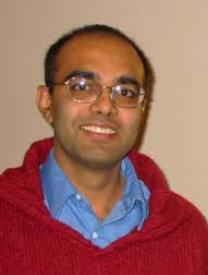
Vijay Balasubramanian
Computational Neuroscience Minor Advisor
Dr. Balasubramanian use a combination of experimental and computational approaches to study how the retina encodes information about the visual world. He is a faculty member in the Physics department and serves as adviser for the newly established BBB minor in computational neuroscience. He teaches BBB585 (Theoretical and Computational Neuroscience).
Read Bio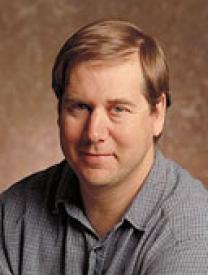
David Brainard
Dr. Brainard is interested in human vision and machine vision. He uses psychophysical and computational methods to study the general problem of how color appearance helps in perceiving object texture and identity. He is a faculty member in the department of Psychology and teaches PSYCH107 (Introduction to Cognitive Science).
Read Bio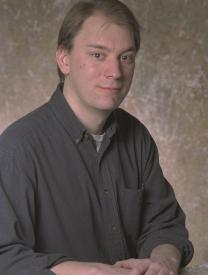
Russ Epstein
Dr. Epstein uses a combination of functional magnetic resonance imaging (fMRI) and behavioral methods to investigate how the human brain represents scenes, places, objects. He is a faculty member in the department of Psychology and teaches BBB249 (Cognitive Neuroscience).
Read Bio
Martha Farah
Dr. Farah is cognitive neuroscientist who works on problems at the interface of neuroscience and society. These include the effects of childhood poverty on brain development, the expanding use of neuropsychiatric medications by healthy people for brain enhancement, novel uses of brain imaging in legal, diagnostic and educational contexts and the many ways in which neuroscience changes the way we think of ourselves as physical, mental, moral and spiritual beings. She is a faculty member in the department of Psychology and is the Director of the Center for Neuroscience & Society. She teaches BBB247 (Neuroscience and Society).
Read Bio
Lori Flanagan-Cato
Co-Director
Dr. Flanagan-Cato studies the neural circuits and receptor signaling mechanisms that underlie hormone-driven behaviors, such as water and sodium ingestion and reproductive behaviors. She is faculty member in the Department of Psychology and teaches BBB109 (Intro to Brain and Behavior), BBB260 (Neuroendocrinology) and BB4260 (Neuroendocrinology Seminar).
Read Bio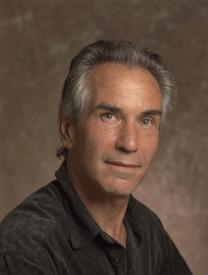
Harvey Grill
Dr. Grill's work focuses on the neural bases of obesity and anorexia by studying the neural circuits and neurochemical systems that control food intake and energy expenditure. He is a faculty member in the department of Psychology and teaches BBB227 (Physiology of Motivated Behavior).
Read BioJoe Kable
Dr. Kable's work aims at understanding how people make decisions, and in tracing out the underlying psychological and neural mechanisms of choice using an interdisciplinary approach that involves drawing on methods and ideas from social and cognitive neuroscience, experimental economics and personality psychology. He is a faculty member in the Department of Psychology and teaches BBB473 (Neuroeconomics).
Read Bio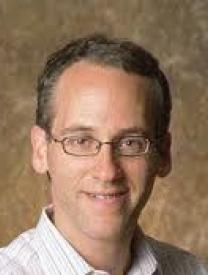
Mike Kahana
Dr. Kahana's work focuses on neurocomputational mechanisms of human episodic and spatial memory in humans. His laboratory uses mathematical modeling and computational techniques to study human memory applying these quantitative methods both to data from laboratory studies of human memory and from electrophysiological studies done on patients with implanted electrodes. He is a faculty member in the Department of Psychology and teaches BBB259 (Human Memory).
Read Bio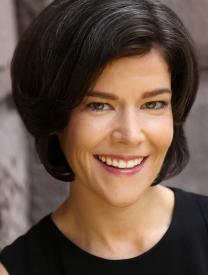
Nicole Rust
Read BioWe have a remarkable ability to store memories of the objects and scenes we have encountered after viewing thousands, each only once and for a few seconds. To understand the neural basis of visual memory, Dr. Rust’s laboratory combines investigations of human and animal visual memory behaviors, measurements and manipulations of neural activity, and computational modeling. One emphasis in their work is directed at descriptions of the brain's learning rules as well as descriptions of how populations of neurons signal visual memory percepts. A complementary emphasis is focused on understanding where and how visual memories are stored by targeting the circuit and synaptic mechanisms responsible for visual memory storage. She is a faculty member in the Department of Psychology and teaches BBB217 (Visual Neuroscience) and BBB417 (Visual Processing).
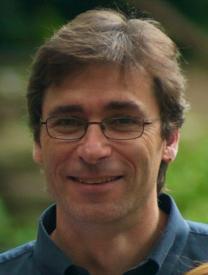
Marc Schmidt
Co-Director
Dr. Schmidt studies the neural basis of vocal communication in songbirds using an approach that combines electrophysiology, reversible inactivation of select brain regions and quantitative behavioral analysis. Some of his work, in collaboration with David White, also examines the neural basis of sociality. He is a faculty member of the Department of Biology and co-director of the BBB program. He teaches BBB251 (Cellular and Molecular Neurobiology) and BBB476 (Neural Systems & Behavior).
Read BioAdjunct Faculty

Jennifer Heerding
Associate Director
Dr. Jennifer Heerding’s 30-year career at Penn includes her work as a graduate student, a postdoctoral fellow and as the Associate Director for the undergraduate Neuroscience Program. She is a native of California, with degrees in chemistry from both U.C. Davis and U.C. Berkeley. She earned her Ph.D. in Pharmacology at Penn in the laboratory of Dr. Steven Fluharty, investigating ligand binding to G protein coupled receptors. She has taught Autonomic Physiology (NRSC 2269), Stress Neuroscience (NRSC 4469) as well as Behavioral Pharmacology (BBB 481) and Developmental Neurobiology (BBB 350), using her Rhodesian Ridgeback (“Bob”) as a topic of numerous hypothetical medical conditions and situations. Bob is amazingly resilient, having survived acute hypertension, hyponatremia and various types of pituitary tumors. Dr. Heerding also teaches online neuroscience classes through the College of Liberal and Professional Studies, including Autonomic Pharmacology (NEUR 2800) and Psychopharmacology (NEUR 4000). She has been named a “Hall of Fame” instructor by Penn Course Reviews and has been chosen three times as the recipient of the Neuroscience Teaching Award. Dr. Heerding was also honored with the Dean’s Award for Distinguished Teaching by Affiliated Faculty in 2011.
In addition to teaching, Dr. Heerding has advised students at Penn for over 20 years. She has worked with incoming students to explore their interests and investigate potential majors. She has worked with Neuroscience majors to plan coursework and discuss research opportunities as well as long-term goals. She has also worked with students applying for graduate fellowships through the Center for Undergraduate Research and Fellowships, helping with essay preparation (where appropriate) and applications. Included among the many students with whom she worked were 2 Rhodes Scholars, 3 additional Rhodes finalists, 3 Thouron Award recipients and 2 recipients of the Fulbright Scholarship Award.
Read Bio
Michael Kane
Senior Lecturer
Born and raised in the Philadelphia area, Dr. Kane received his undergraduate degree in psychology at Penn State University. For the next several years, he worked as a research assistant in the neuroimaging lab of Dr. Bradley Peterson, first at Yale University, then at Columbia University. Dr. Kane went on to UCLA (“The West is the Best” as fellow Bruin Jim Morrison proclaimed) where he completed his Ph.D. in neuroscience in the fields of neurogenetics and neurodevelopment under the guidance of Dr. Joanna Jen. He then completed a post-doctoral fellowship in molecular neurobiology at the Bay Pines Veterans Affairs Medical Center in St. Petersburg, FL under the direction of Dr. Bruce Citron. He went on to complete a second post-doctoral fellowship in Molecular Neurochemistry at the Wayne State School of Medicine under the direction of Dr. Donald Kuhn. In 2012, Dr. Kane returned to the Philadelphia area and served as an adjunct faculty member at both Temple University and Penn State Abington. Prior to arriving at Penn in July of 2015, Dr. Kane was a Science Writer at Thomas Jefferson University. Dr. Kane teaches BBB109 and BBB270.
Read Bio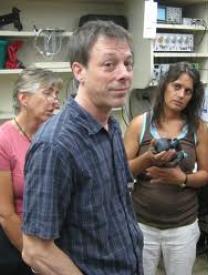
Mike Kaplan
Lecturer / Lab Coordinator
Dr. Kaplan was trained as a synaptic physiologist working on mechanisms of synaptic facilitation and depression. He is a lecturer for the BBB program and is a recipient of the Dean's award for Distinguished Teaching. He teaches BBB251 (Cellular and Molecular Neurobiology) and BBB492 (Experimental Methods in Synaptic Physiology). He is also the coordinator for the laboratory sections of BBB109 (Introduction to Brain and Behavior).
Read Bio
Nedra Lexow
Dr. Lexow currently teaches BBB 475 Cellular and Molecular Mechanisms of Neurodegenerative Disease, BBB 480 Biological Basis of Psychiatric Disorders, and BBB 482 Clinical Psychopharmacology. In the past, she has taught a variety of courses including BBB 270 Drugs, Brain, and Mind and BBB 229 Cellular Neuroscience at Penn and as a visiting professor at the University of the Sciences she taught biomedical statistics and medical writing. Her doctoral work in neuroscience and pharmacology was completed at the University of Pennsylvania under the guidance of Dr. Andrew Winokur and Dr. James Eberwine and post doctoral work was conducted with Dr Hank Kung, also at Penn. Additionally, Dr. Lexow has 15 years clinical research experience in the pharmaceutical and biotech industries.
Read Bio
Julie McGurk
Dr. McGurk was trained as a developmental neurobiologist and neurophysiologist, studying the molecular mechanisms of synapse development. She teaches Intro to Brain and Behavior (BBB109) and Developmental Neurobiology (BBB350). Dr. McGurk is an Associate Director at the Center for Teaching and Learning, where she supports STEM teaching at the university.
Read Bio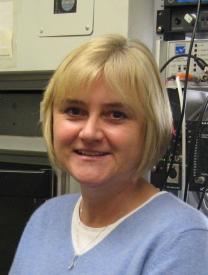
Judith McLean
Senior Lecturer
Dr. McLean was trained as a neurophysiologist working in the visual system. Currently she is working on the mechanisms involved in the integration of breathing and vocalization in the bird song system in the laboratory of Dr. Marc Schmidt. She is a lecturer for the BBB program and teaches BBB 109 (Introduction to Brain and Behavior) and BBB217 (Visual Neuroscience).
Read Bio
Andrew Newberg
Dr. Newberg is considered a pioneer in the neuroscientific study of religious and spiritual experiences, a field frequently referred to as neurotheology and is interested in understanding the relationship between the brain, religion, and health. His research has included brain scans of people in prayer, meditation, rituals, and various trance states. He is a faculty member in the Department of Integrative Medicine and Jefferson Medical School. He teaches BBB421 (Functional Imaging of the Human Brain).
Read Bio
